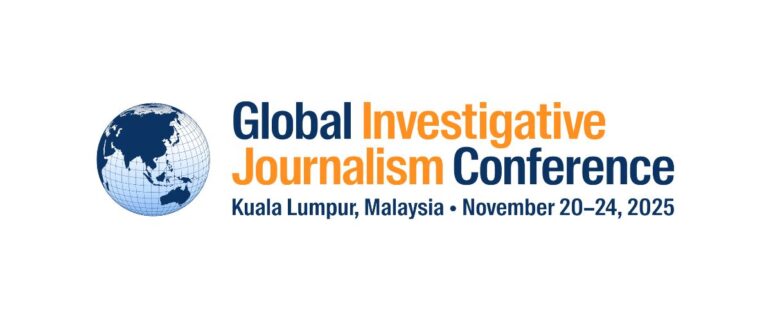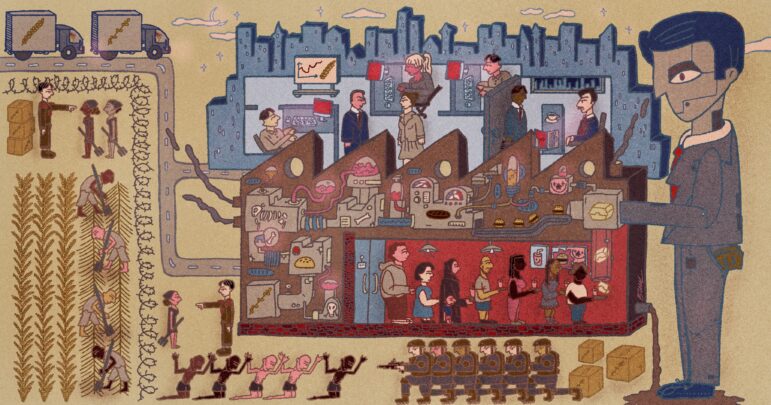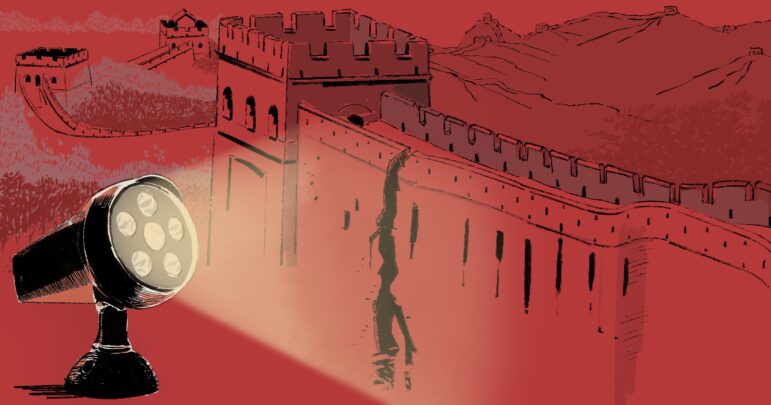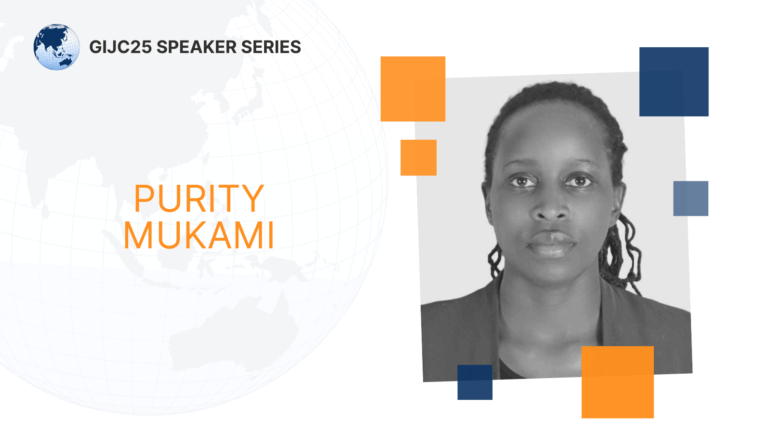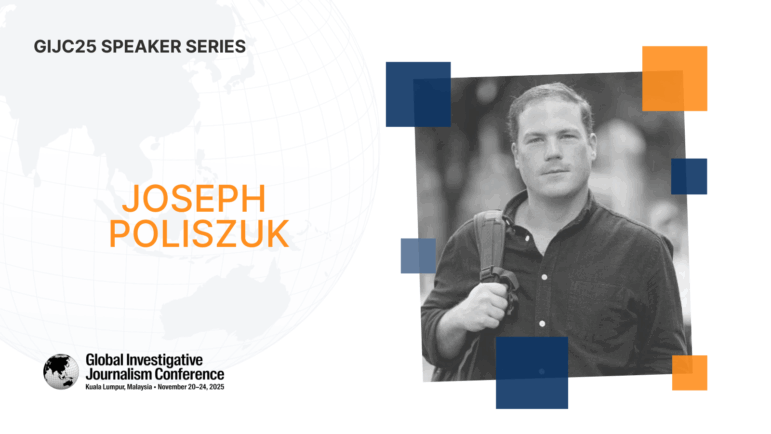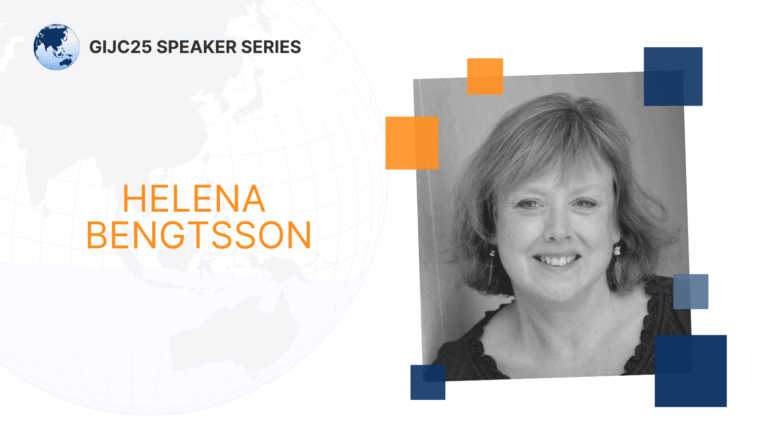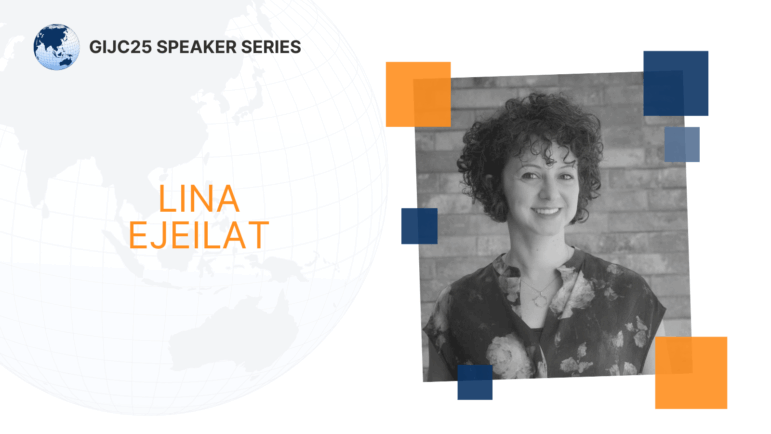

Image: GIJN
Editor’s Note: Ahead of the 14th Global Investigative Journalism Conference in Malaysia, GIJN is publishing a series of short interviews with a globally representative sample of conference speakers. These are among the more than 300 leading journalists and editors who will be sharing practical investigative tools and insights at the event.
Lina Ejeilat is the co-founder and executive editor of 7iber, an award-winning online magazine based in Amman, Jordan. Launched in 2007 as a blog and citizen-media platform, 7iber evolved into a professional magazine by 2012, with a dedicated team of journalists, editors, and multimedia producers publishing hard-hitting investigations and critical analysis on underreported issues in Jordan and the Arab region. Formerly a reporter for Thomson Reuters in Amman, Ejeilat now also teaches reporting and data journalism at the Jordan Media Institute, and leads training workshops for investigative journalists across the region. In 2023, she won WAN-IFRA’s Women in News Editorial Leadership Award for the Arab region.
Ejeilat will speak on the panel Global Health Under Siege: Exposing Corporate Lobbying Tactics at GIJC25, which will reveal new strategies by multinational corporations to undermine public health regulations, and share investigative and collaboration techniques to expose them.
GIJN: Of all the investigations you or your team have worked on, which has been your favorite, and why?
Lina Ejeilat: I have many favorites, but there’s one that stands out the most because of the unexpected impact that it had. In 2017, our colleague Shaker Jarrar uncovered that three areas inside Jordan, most of which was very fertile agricultural land, were under Israeli control because of a clause in the Jordanian-Israeli Peace Accords of 1994 that granted Israel “special rights” in these lands — practically leasing them for 25 years, subject to automatic renewal and completely undermining Jordanian sovereignty over them. The details of the treaty were not accessible to the public, nor were the details of the land being under Israeli control, so he had to find sources inside parliament (which ratified the accords in 1994) to get access to the treaty and its annexes, and inside the Department of Lands and Survey, so we could visually recreate exact maps of these areas. He also collaborated with Palestinian researchers who had access to Hebrew-language archives and documents. The investigation was picked up by local and regional media, and sparked widespread public reactions. It inspired a grassroots campaign over the course of a year that resulted in Jordan officially announcing that it will not renew this lease and would regain control of these lands. It’s very rare for journalism in Jordan to have this kind of impact on politics.
GIJN: What are the biggest challenges for investigative reporting in your country?
LE: The biggest challenge is undoubtedly the extremely restrictive political environment and shrinking civic space. Over the past 10 years, we have seen growing restrictions on media, freedom of expression, and all forms of public political engagement. There’s very little access to information or open public records. And Jordan’s cybercrimes law has made it very easy for public officials to sue journalists for defamation and libel.
GIJN: What reporting tools, databases, or techniques have you found surprisingly useful in your investigations?
LE: In the absence of open public records or accessible data, we have learned to mine and manually build datasets. For example, in an investigation we did on the parliamentary election results in Amman’s third district, we knew that the Independent Electoral Commission — the official body responsible for the elections — wasn’t going to publish the detailed ballot count. So we had a team of six reporters go to every polling station in the district at the time ballots were counted and take a photo of the results sheet. Then we manually entered this data into a spreadsheet. This allowed us to do an extensive data analysis and to produce a very rich and nuanced story that would have been impossible otherwise.
GIJN: What’s the best advice you’ve received from a peer or journalism conference — and/ or what words of advice would you give an aspiring investigative journalist?
LE: At the very first GIJC that I attended, back in Johannesburg in 2017, I attended a fantastic session by Martha Mendoza, titled “What Washington Is Doing in Your Country.” This year when we worked on a story about the thousands of young Jordanian men who were making a long and dangerous journey to immigrate to the US through the Mexican border, we went back to the data sources she shared, and we were able to prove that there had been a spike in the number of Jordanians seeking asylum in the US in 2024 and 2025.
Another piece of advice that I recently heard from a veteran journalist, and that resonated very much with me, was this: one of the most important skills you need to cultivate is how to shorten the distance between an idea and the execution of this idea. I think this is very important, especially for those of us who work on investigative stories and “slow” journalism, because, while it’s very important to give the story the time and space it needs so it can be thoroughly reported and narrated, it’s also important to preserve a sense of timeliness and to resist the urge to keep working on one story indefinitely.
GIJN: What topic blindspots or undercovered areas do you see in your region? And which of these are ripe for new investigation?
LE: There is no shortage of underreported areas in our region, and one thing I’ve learned throughout my work at 7iber is that oftentimes you will find great ideas for investigative stories in everyday issues. In recent years, we have expanded our coverage of health and environmental issues. Health is one great example of an area that sits at the intersection of public policy, socio-economic justice, corporate accountability, sustainability, and climate change. By paying closer attention to everyday struggles of people around us, we’re able to identify important stories to investigate.
GIJN: Can you share a notable mistake you’ve made in an investigation, or a regret, and share what lessons you took away?
Some years ago I worked on an investigation about labor violations faced by female teachers in private schools. The original story was meant to be about the gender pay gap in private schools, and an independent national commission had recently published a study about it, stating that the pay gap between men and women in private schools was 42%. The published study did not include the raw data, and at some point in the reporting process it occurred to me to request it. I was surprised to find serious flaws in the conclusions, first because they were comparing different types of workers in private schools, not just teachers, and without ensuring that they were comparing salaries of people with the same qualifications doing the same type of work. But more importantly, the number of the men in the sample was way too small, and the more stark finding was that a significant number of women surveyed were getting paid salaries well below the legal minimum wage. I realized that this is where the real story was, and pursued it.
This taught me that you should always ask for the raw data, and that averages can be very deceptive and hide important stories underneath. But my regret is that even though our main angle was 27% of female teachers were getting paid below minimum wage, we still included a comparison with men in the data visualizations and we shouldn’t have. Just because it was in the commission’s study doesn’t mean we needed to include it.
GIJN: Can you share an example of the kind of technique or insight you plan to highlight for GIJC25 attendees — or otherwise what you yourself are looking forward to in Malaysia, whether in terms of networking or learning about an emerging reporting challenge or approach?
LE: GIJC is always a place of great inspiration, and I often come back with new ideas for stories and new techniques and tools we can use. At the last GIJC, for example, I was deeply inspired by a panel on investigating health-related issues, and ended up reaching out to one of the speakers and collaborating with her in our health journalism fellowship program. I’m looking forward to new inspiration this year. I’m also planning to seek out insights and advice from other media outlets on how they are dealing with challenges related to AI bots and changing reader-behaviors, since it’s something we have been grappling with for some months now.
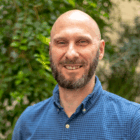 Rowan Philp is GIJN’s global reporter and impact editor. A former chief reporter for South Africa’s Sunday Times, he has reported on news, politics, corruption, and conflict from more than two dozen countries around the world, and has also served as an assignments editor for newsrooms in the UK, US, and Africa.
Rowan Philp is GIJN’s global reporter and impact editor. A former chief reporter for South Africa’s Sunday Times, he has reported on news, politics, corruption, and conflict from more than two dozen countries around the world, and has also served as an assignments editor for newsrooms in the UK, US, and Africa.

